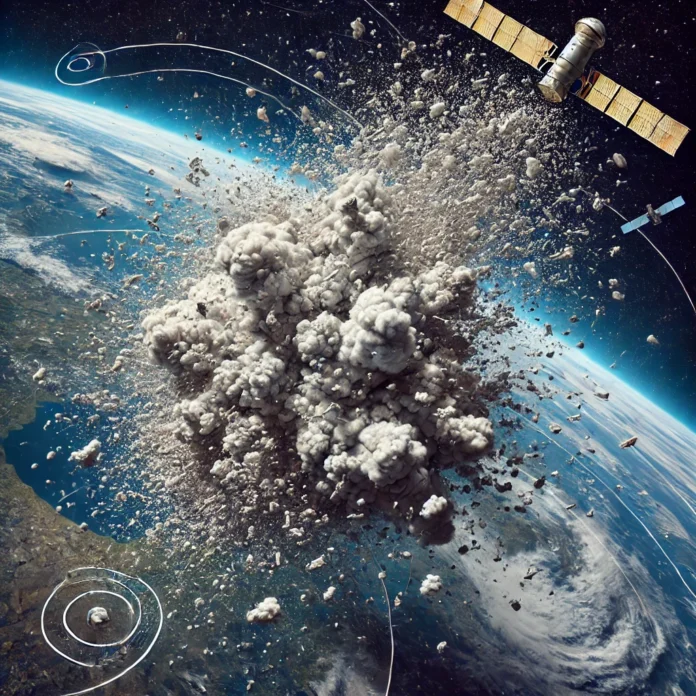A Chinese Long March 6A rocket’s upper stage has fragmented into a cloud of over 700 pieces of space debris, raising significant concerns about orbital safety. The incident occurred after the rocket successfully deployed 18 satellites into orbit, part of China’s growing efforts to establish a communication constellation similar to SpaceX’s Starlink.
The Incident Overview
The fragmentation of the Long March 6A rocket stage happened shortly after the satellite deployment, creating a substantial debris field at an altitude of approximately 800 kilometers. This debris cloud is particularly concerning because it occurred in a high-traffic region of Low Earth Orbit (LEO), where thousands of satellites, including many critical communication and weather satellites, are operational.
Potential Risks and Implications
The debris poses a significant threat to more than 1,000 active satellites and other objects in orbit. Space tracking organizations have reported over 1,100 close conjunctions, or near-miss events, involving the new debris cloud. A major concern is the potential for cascading collisions, which could exacerbate the already critical issue of space debris, increasing the likelihood of further collisions and generating even more debris.
Space Debris and Orbital Safety
This event highlights the growing challenges posed by space debris. As the number of satellite constellations increases, so too does the risk of collisions in orbit. The long-lasting presence of debris from this incident—expected to remain in orbit for decades—adds to the ongoing concerns about the sustainability of space activities and the safety of both existing and future missions.
International Response
While the U.S. Space Command has confirmed the breakup and is tracking the debris, there has been no immediate threat reported. However, the international community continues to express concern over China’s handling of rocket stages and the resulting debris. Western countries and space sustainability advocates have called for more stringent measures to prevent such incidents, urging China to improve its space debris mitigation strategies.

Conclusion
The fragmentation of the Chinese Long March 6A rocket stage is a stark reminder of the fragility of our orbital environment. As the global space community pushes forward with new missions and constellations, the need for effective space debris management and international cooperation becomes ever more critical to ensure the long-term sustainability of space activities.


